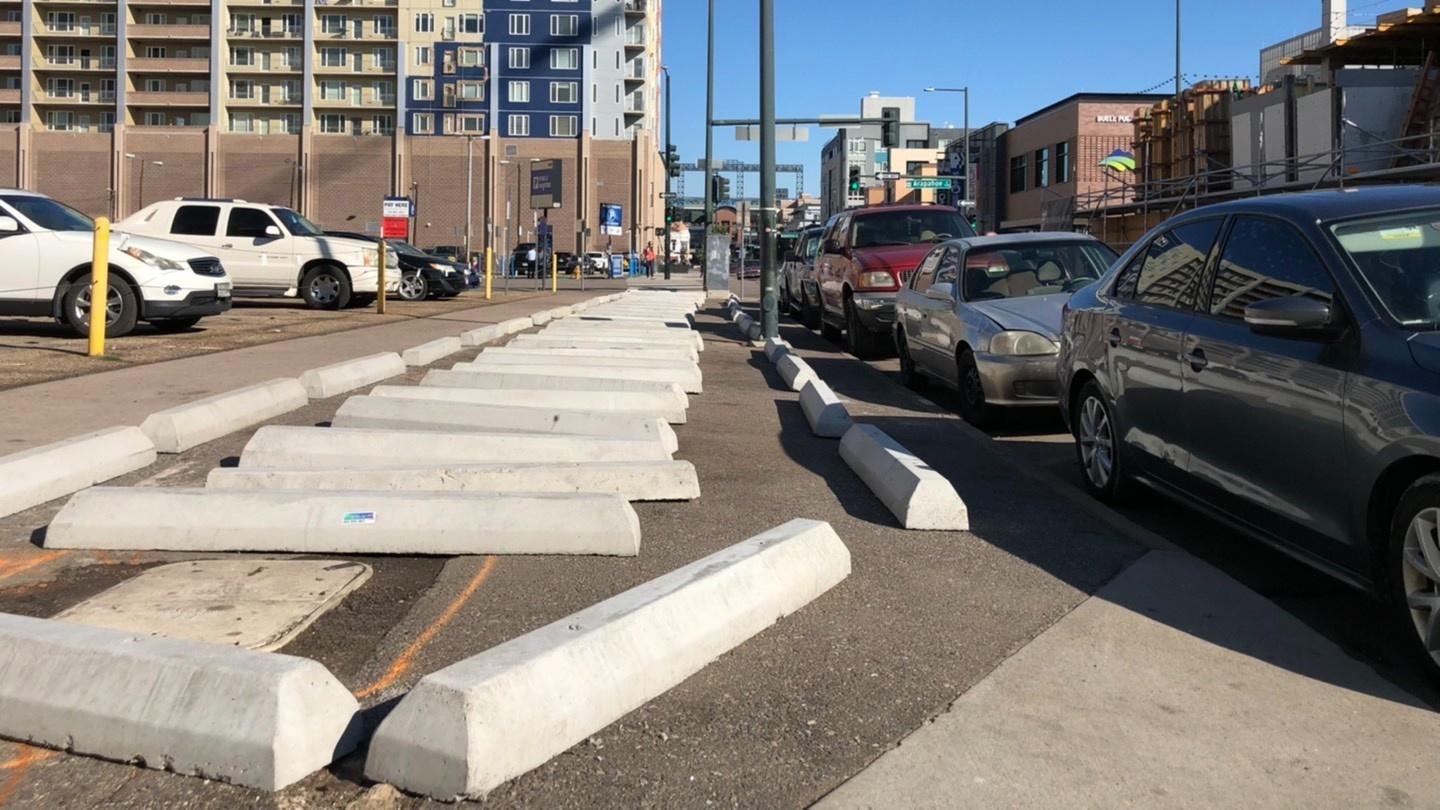According to the Metro Denver Homeless Initiative’s most recent “point in time” report, there are about 4,100 people experiencing homelessness in Denver. However, that data was collected before the COVID-19 pandemic, which has “only made the homelessness crisis worse," HUD Secretary Marcia Fudge said.
“We are seeing more people experiencing homelessness than ever,” added Britta Fisher, the executive director of the Department of Housing Stability, who also spoke at the press conference.
“What we are doing, post-pandemic, is enforcing the law,” Hancock said of the sweeps.
But while Hancock refers to this current time as “post-pandemic,” it’s clear that the economic effects of the pandemic are still leaving their mark on thousands of residents. According to The Associated Press, nearly 200,000 Coloradans are behind on rent and facing eviction, indicating that more people could slip into homelessness.
Moreover, the combination of rising rents and stagnant wages has put more people in precarious housing positions. The Center on Budget and Policy Priorities (CBPP) found that “373,900 people in 182,400 low-income Colorado households pay more than half their income for rent, often forgoing necessities, like food or medicine, to keep a roof over their heads.”
The latest data from CBPP also show that median Colorado rent has increased 24 percent since 2001, but median renter income has increased by just 9 percent.
Hancock’s press conference took place at the city’s newest 24/7 shelter, located at 4600 E. 48th Ave. During the remarks, Hancock introduced four main goals as part of the city's housing and homeless recovery programs.
First, Hancock said the city is looking to acquire more hotels and motels to house residents experiencing homelessness. Second, the city plans to create more safe outdoor spaces that will provides "basic amenities" and ideally replace the unsanctioned outdoor camps.
"Third, we will leverage existing partnerships with organizations like the Denver Housing Authority to more quickly connect our unhoused residents to available apartments," Hancock said. "We will be expanding supportive programs that provide to be invaluable during the pandemic, such as rental assistance, utility assistance and eviction protection services."
Finally, Hancock said the city will be "growing out the pipeline of new housing developments and the preservation of existing homes."
Fisher said the city is working to transform the city's response to homelessness "from one that was largely designed for shelter from crisis overnight, to a residential shelter system that is open 24/7 to serve people in crisis and help them reconnect to housing."
Fisher said that Denver was one of the only city's in the country to receive FEMA funding for emergency shelter, and that based on feedback from unhoused residents, the 24/7 shelters—like the new one on 48th Ave that provide three meals a day and on-site health care services—have been a success.
"When people are better fed, better rested, and less anxious, they are ready to connect with housing," Fisher said.
Mike Sinnett with Catholic Charities was also at the press conference. Catholic Charities is moving into a new shelter that will house up to 250 women on a 24/7 basis.
"What we learned from COVID is that 24/7 sheltering is really our best option," Sinnett said, echoing Fisher. At the new Catholic Charities shelter, women will have a "place to call home," Sinnett said.
He added that the 24/7 model allows unhoused residents to get "some of the dignity of housing back."
“When homelessness occurs, we should do everything in our power...to make it brief and one time,” Hancock said.
Kyle Cooke is the Digital Media Manager at Rocky Mountain PBS. You can reach him at kylecooke@rmpbs.org or on Twitter at @KyleACooke.



